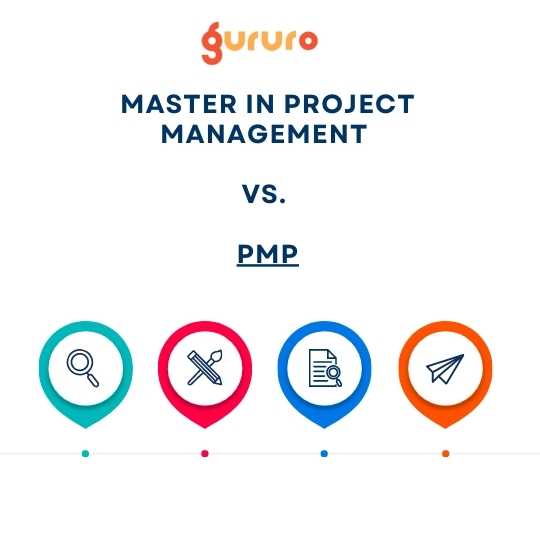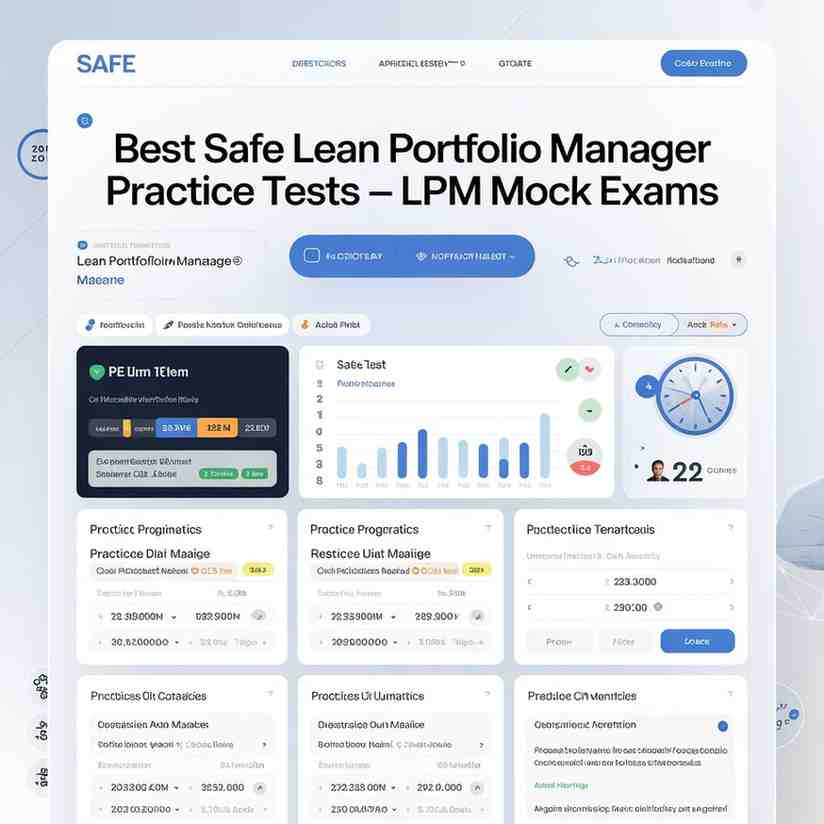Project management is a field that has grown extensively in recent years. It’s also become more competitive to land a job. Does that mean you shouldn’t go for the Masters’s degree? Not at all! Read on as we compare the two and help you decide what’s best for your career. In this blog we will learn more about “Masters in Project Management vs PMP” in detail.
So, what do Project managers do?
Project managers are responsible for planning, executing, and monitoring projects. They must be able to communicate effectively with all members of a project team, including upper management, clients, and vendors. They must also be able to handle multiple tasks simultaneously and work well under pressure.
What is a Project Management Professional (PMP)?
A Project Management Professional (PMP) is a credential offered by the Project Management Institute (PMI). To be eligible for the PMP, candidates must have a four-year degree, at least three years of project management experience, and 35 hours of project management education. The PMP credential is the most popular project management certification, widely recognized and sought after by employers. There are more than 1.3 million PMP credential holders as of Nov 2022.
What is a Master in Project Management?
A Master’s in Project Management is earned after completing a bachelor’s degree program. The degree is designed to prepare students for careers in project management. There are many different types of project management degrees available. Still, most programs include coursework in business administration, finance, and project management principles. Some programs also offer concentrations in specific areas of project management, such as construction or information technology project management.
Most project management degree programs require students to complete a capstone project to graduate. A capstone project is a large-scale research or development project that allows students to apply what they have learned in their coursework to a real-world situation. Capstone projects are often done in partnership with businesses or organizations. They can involve anything from developing a new product to designing and implementing a marketing campaign.
A Master’s in Project Management can prepare you for this demanding career by teaching you the necessary skills and knowledge to succeed.
Are you Looking for a Master’s in Project Management?
What are the Requirements for an M.S. in Project Management?
Most universities require a bachelor’s degree for admission into a master’s program. There is no standard undergraduate degree for project management, but many students complete a degree in business administration or engineering. In some cases, students with degrees in other areas may be able to complete prerequisite coursework to qualify for admission.
In addition to a bachelor’s degree, most Master’s programs in project management require the completion of core coursework in topics such as statistics, accounting, and finance. Many programs also require students to complete a capstone project or thesis.
What are the Requirements for PMP Certification?
To be eligible for the PMP certification, You must have
- Four-Year Degree
- 36 months of experience leading projects within the past eight years
- 35 hours of project management education/training or CAPM® certification
Gururo, a PMI Authorized Training Partner (#5718), is excited to offer you our comprehensive PMP® Certification Training Course with our PMP Training Plus Pack:
-
PMP Training Course
-
PMP Exam Simulator 2024
-
PMP Application Service
Get PMP certified in just 5 weeks:
-
📚 35 Contact Hours (PDUs)
-
🎥 40+ hours of on-demand videos
-
📝 14+ simulations with 3000+ questions, aligned with the 2024 PMP Exam format
-
🔍Comprehensive explanations for each question and option
-
🗓️ 365 days of unrestricted access
-
✅ Complete PMP application in 1 day, expert-reviewed with no risk of rejection
-
💬 Connect directly with your mentor
-
🏆 Course Completion Certificate
-
📖 Last-Minute Lecture Notes Recap
-
🔄 Unlimited attempts at quizzes and simulations
-
📊 Progress Tracking & Analytics
-
📂 Project Management Templates
-
🕒 24/7 support
What is the process to get PMP certified?
Once you have the necessary experience or education, you’ll need to pass an exam. The PMP exam is a multiple-choice test covering all project management aspects. You can find study guides and practice tests online to help you prepare.
After passing the exam, you’ll need to maintain your certification by earning 60 professional development units (PDUs) every three years. PMP professionals can earn PDUs by attending conferences, taking additional courses, or reading relevant books and articles. Gururo can help you maintain your PMP by acquiring the 60 PDUs quickly. You can check out the details here.
Pursue the Masters in Project Management vs PMP certificate?
There are a lot of factors to consider when deciding whether to pursue the Master’s in Project Management or the PMP certificate. Some things to remember include your career goals, time commitment, and cost.
The Master in Project Management is an excellent choice if you want to advance your career and earn a higher salary. It also shows that you are serious about your project management skills and are dedicated to completing a rigorous program. However, it is a significant time and financial investment.
The PMP certification is more affordable and can be completed in a shorter time frame. It is also widely recognized by employers as a valuable credential. However, it does not offer the same advancement potential as the Masters’s degree.
Ultimately, the decision comes down to what is best for you and your career goals. If you want to invest the time and money into getting a Masters’s degree, it can be a great way to boost your career. On the other hand, if you are looking for a more affordable option that will still give you an edge over other job seekers, the PMP certification may be the better choice.
What are potential career opportunities with a master's degree in project management vs. a PMP certification?
Many potential career opportunities are available for those with a master’s degree in project management or a PMP certification. The most common positions include project manager, program manager, portfolio manager, and project executive.
- Project managers are responsible for leading and coordinating projects from start to finish, ensuring that all objectives are met within the specified timeframe and budget. In addition, they work closely with teams of engineers, developers, and other professionals to ensure that all aspects of the project are running smoothly and efficiently.
- Program managers oversee multiple projects at once, ensuring they are all on track and meeting their deadlines. In addition, they typically have a broad knowledge of project management principles and practices, allowing them to coordinate multiple teams simultaneously effectively.
- Portfolio managers manage projects, ensuring they align with the organization’s goals and objectives. In addition, they work closely with senior management to ensure that the project portfolio achieves its desired results.
- Project executives provide overall direction and guidance for a project or group of projects. They develop the project strategy and vision and then work with project managers to ensure it is appropriately executed.
Is PMP certification worth it?
Whether or not pursuing a PMP certification is worth it depends on your circumstances and career goals. For example, if you’re looking to move into project management from another field or are already working in project management but want to improve your job prospects and earnings potential, then getting your PMP certification may be worth the time and effort.
However, suppose you’re already an experienced and successful project manager or need more time or inclination to pursue further training. In that case, a PMP certification may not be necessary. Ultimately, whether or not to get certified should be based on your needs and goals.
Salary after doing PMP or Masters in Project Management
The average salary for a Project Manager is $73,000 per year in the United States. Project Managers with a Masters’s degree in Project Management or PMP certification can expect to earn 10-20% more than those without these credentials.
Conclusion
When deciding whether to pursue a Master’s in Project Management or PMP certification, you must consider your career goals and the specific requirements of the organizations you are interested in working for. For example, suppose you are looking to move into upper-level management positions. In that case, a Masters’s degree may be a better option. On the other hand, assume you are happy working as a project manager and want to pursue something different than a higher level of education. In that case, the PMP certification may be a better fit. Whichever route you choose, make sure you research to make an informed decision about which path is best for you.








